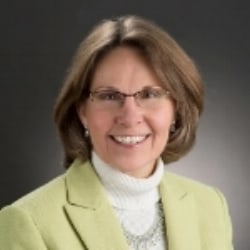This week the Arlington Mission Office continues the parade of Missionary Essay Contest Winners with the wonderful 2nd Place winner by Julie Schoenman.

“Uh-oh,” observed my roommate just two days into my first mission trip, “you have the Haiti bug!” With several mission trips already under her belt and a full year spent teaching in Haiti, she spoke with some authority. Fortunately, her diagnosis was spiritual, not medical, and I am happy to report that she was spot on. The lovely people of Haiti and the natural beauty of the country touched my heart almost upon arrival and have only increased their hold on me in the years since that first trip.
This impact was not a given. Back then, my connection to mission work was minimal – I was just one of many parishioners from St. Thomas à Becket church in Reston who happily made an annual donation to provide tuition assistance and hot lunches to students at a small Haitian school we had begun supporting in 2010. Then, late in 2013, our mission committee leader put out a call for people who might be interested in joining him on a first visit to the school. I don’t know why this unexpected invitation spoke to me, but within short order I had purchased my ticket and started getting all the necessary immunizations. In deciding to go, we both took a big leap of faith, praying for a safe trip and wondering what in the world we had signed up for.
Totally naive, we had the great fortune to make this and several later trips with experienced missionaries from St. Charles Borromeo and St. Anthony of Padua parishes here in northern Virginia, both of which have a long history of supporting schools and other ventures in the same region of Haiti. Our mission partners were generous with their insights and connections, as well as wonderful traveling companions. If only for the pleasure of these new friendships, the trips have been well worth the effort. But they have been so much more.
Our trips are not what most people probably think of when they hear the term mission trip. We don’t build houses, provide medical care or teach Bible study classes. Rather we are there to observe, ask questions and listen. Our aims are to provide verification to our donors that their financial support is being used wisely, work through inevitable snags, and identify other needs we might be able to tackle. Over the years, in addition to our central mission of supporting the students and teachers, our faithful donors have made it possible to add new buildings to the school property, strengthen a community gardening program, drill a new well, build latrines, encourage hygiene education, initiate a water purification program, and build and equip a new kitchen at the school. It has been a joy and a privilege for me to be able to witness this progress firsthand during repeat visits, and I am always so deeply grateful to the sponsors who trust us to make good decisions about how their generous donations are used.
At this point, the Haiti bug still has its hold on me. My original mission partner and I were blessed to make our fourth trip to Haiti this past March. For the first time, we traveled without our mentors from St. Charles Borromeo and we took one of our fellow parishioners with us. Watching her first-time reactions to the overwhelming sites of Haiti caused me to reflect on the evolution of my own reactions. That first trip, I struggled to take in the 360-degree barrage of heartbreaking poverty – it was everywhere I looked. But I also appreciated the gentle murmur of townspeople gathering at the community well in the early morning, the neatly-dressed students climbing the steep hill to school, and the responsible but still playful children watering livestock in the river at day’s end. These simple sights and sounds fill me with a quiet peace that I treasure more with each visit. At the same time, my shock at the grinding poverty has faded. “What is wrong with me,” I wonder, “that I no longer respond emotionally to such immense need?” I think it is simply that I no longer see the poverty first. As friendships have blossomed and I have witnessed the innate goodness of the Haitian people, it is the person that I now see before the circumstances.
The Haitian priest who leads our community is fond of saying that God will reward our generosity one hundredfold. I assure you, for me, He already has.
Julie Schoenman is an economist who directs research to inform U.S. health care policy. Her love of new experiences, children and the French language led her to become involved in mission work in Haiti. She would like to expand on those experiences by working on health-related missions and in other francophone countries in the coming years. She has been a member of St. Thomas à Becket parish for almost 30 years.